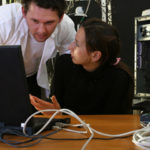Would I Make a Good Information Security Analyst?
Information security analysts plan and carry out security measures to protect an organization’s computer networks and systems.
Employment of information security analysts is projected to grow 32 percent from 2018 to 2028, much faster than the average for all occupations. Demand for information security analysts is expected to be very high, as these analysts will be needed to create innovative solutions to prevent hackers from stealing critical information or causing problems for computer networks.
Most information security analysts work for computer companies, consulting firms, or business and financial companies.
Most information security analyst positions require a bachelor’s degree in a computer-related field. Employers usually prefer to hire analysts with experience in a related occupation.
The median annual wage for information security analysts was $98,350 in May 2018.
Tasks
- Develop plans to safeguard computer files against accidental or unauthorized modification, destruction, or disclosure and to meet emergency data processing needs.
- Monitor current reports of computer viruses to determine when to update virus protection systems.
- Encrypt data transmissions and erect firewalls to conceal confidential information as it is being transmitted and to keep out tainted digital transfers.
- Perform risk assessments and execute tests of data processing system to ensure functioning of data processing activities and security measures.
- Modify computer security files to incorporate new software, correct errors, or change individual access status.
Technology Skills
- Development environment software — Apache Ant
 ; C
; C  ; Eclipse IDE
; Eclipse IDE  ; Microsoft PowerShell
; Microsoft PowerShell 
- Network monitoring software — IBM QRadar SIEM; Nagios
 ; Symantec Blue Coat Data Loss Prevention; Wireshark
; Symantec Blue Coat Data Loss Prevention; Wireshark 
- Operating system software — Apple macOS
 ; Linux
; Linux  ; Microsoft Windows
; Microsoft Windows  ; Ubuntu
; Ubuntu 
- Transaction security and virus protection software — HP WebInspect; McAfee
 ; Portswigger BurP Suite; Symantec
; Portswigger BurP Suite; Symantec 
- Web platform development software — AJAX
 ; Django
; Django  ; Hypertext markup language HTML
; Hypertext markup language HTML  ; Spring Framework
; Spring Framework 
![]() Hot Technology — a technology requirement frequently included in employer job postings.
Hot Technology — a technology requirement frequently included in employer job postings.
Knowledge
- Computers and Electronics — Knowledge of circuit boards, processors, chips, electronic equipment, and computer hardware and software, including applications and programming.
- English Language — Knowledge of the structure and content of the English language including the meaning and spelling of words, rules of composition, and grammar.
- Administration and Management — Knowledge of business and management principles involved in strategic planning, resource allocation, human resources modeling, leadership technique, production methods, and coordination of people and resources.
- Engineering and Technology — Knowledge of the practical application of engineering science and technology. This includes applying principles, techniques, procedures, and equipment to the design and production of various goods and services.
- Telecommunications — Knowledge of transmission, broadcasting, switching, control, and operation of telecommunications systems.
Skills
- Reading Comprehension — Understanding written sentences and paragraphs in work related documents.
- Critical Thinking — Using logic and reasoning to identify the strengths and weaknesses of alternative solutions, conclusions or approaches to problems.
- Active Listening — Giving full attention to what other people are saying, taking time to understand the points being made, asking questions as appropriate, and not interrupting at inappropriate times.
- Complex Problem Solving — Identifying complex problems and reviewing related information to develop and evaluate options and implement solutions.
- Speaking — Talking to others to convey information effectively.
Abilities
- Deductive Reasoning — The ability to apply general rules to specific problems to produce answers that make sense.
- Inductive Reasoning — The ability to combine pieces of information to form general rules or conclusions (includes finding a relationship among seemingly unrelated events).
- Oral Comprehension — The ability to listen to and understand information and ideas presented through spoken words and sentences.
- Problem Sensitivity — The ability to tell when something is wrong or is likely to go wrong. It does not involve solving the problem, only recognizing there is a problem.
- Written Comprehension — The ability to read and understand information and ideas presented in writing.
Work Activities
- Interacting With Computers — Using computers and computer systems (including hardware and software) to program, write software, set up functions, enter data, or process information.
- Getting Information — Observing, receiving, and otherwise obtaining information from all relevant sources.
- Identifying Objects, Actions, and Events — Identifying information by categorizing, estimating, recognizing differences or similarities, and detecting changes in circumstances or events.
- Evaluating Information to Determine Compliance with Standards — Using relevant information and individual judgment to determine whether events or processes comply with laws, regulations, or standards.
- Analyzing Data or Information — Identifying the underlying principles, reasons, or facts of information by breaking down information or data into separate parts.




